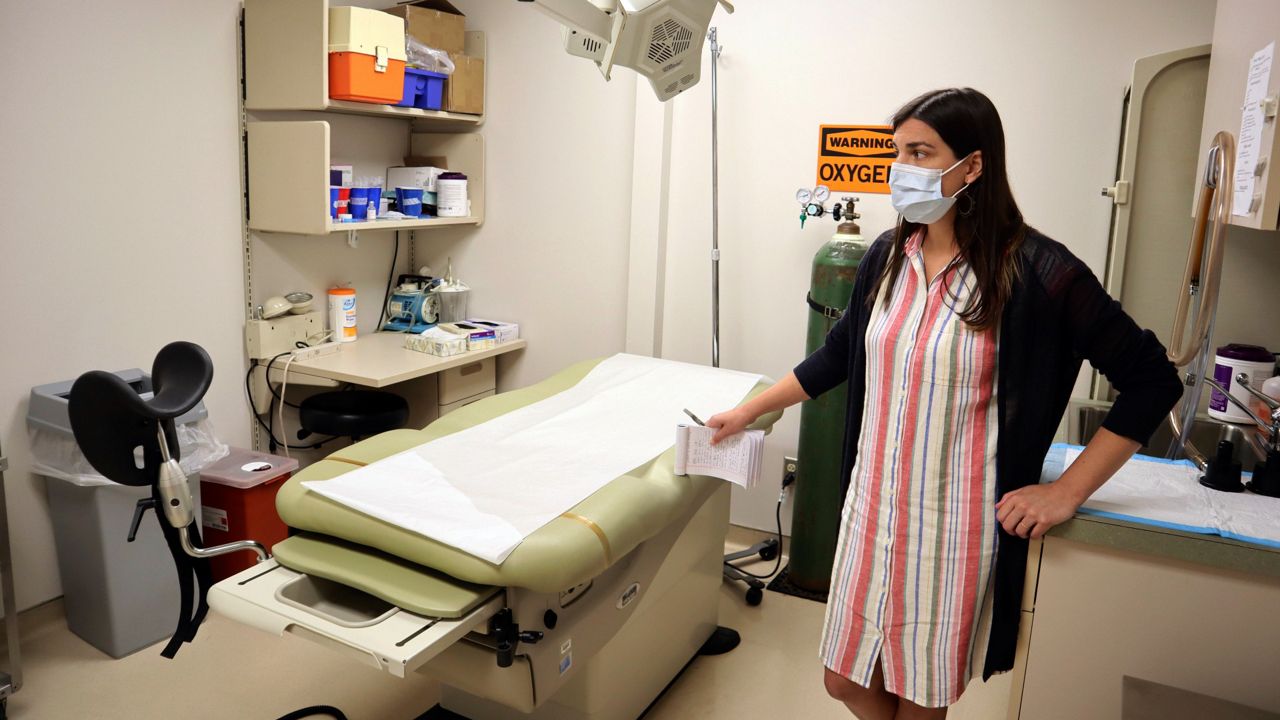GRANITE CITY, Ill. — In the three months following the U.S. Supreme Court’s decision to overturn abortion, Hope Clinic for Women in Illinois has been experiencing about a 90% increase in patients compared to this time last year.
That’s according to Dr. Erin King, executive directive at Hope Clinic who practices and is licensed in Missouri and Illinois. In addition to Missourians crossing the river, she says there has also been an influx of patients coming from Mississippi, Louisiana, Texas, Tennessee and Arkansas for abortions.
King said the Hope Clinic had been preparing for a situation like this for years as surrounding states became more restrictive. In November of last year, the clinic saw about a 20% increase in patients, but predicted an increased high of 40% if there was a sudden change.
Since May, new doctors, nurses and staff have been hired to accommodate the uptick in patients with expanded hours of operation. King said staff used to only see patients until 3 p.m. and now are working until 5 or 6 p.m.
“We’re working as hard as we can, as quickly as we can to see as many patients as we can, but still see them safely, and also make sure that our staff are not here every minute of their life,” King said.
“It’s much safer in health care to have people who are fresh and rested and not overworked and not stretched to the end of the rope. We really are taking safety and also staff satisfaction to keep them here long-term.”
With high volumes of patients coming to Hope Clinic, appointments are now being scheduled 2-3 weeks in advance. This means that patients are coming to the clinic further along in their pregnancies than the clinic had been typically seeing, according to King.
“There are just so many patients that need care. We all have the same goal which is to provide as much access to patients as quickly as we can. When you’re pregnant and you need to end that pregnancy, the longer you wait, the more difficult it becomes whether that’s medically difficult. Abortion is extremely safe, but the earlier you get care for an abortion that it’s even safer,” King said.
Patients calling the Hope Clinic for availability say other clinics they have called also have long wait times for appointments.
“Sometimes our show rate is 80%. Sometimes our show rate is 50(%), and sometimes patients are waiting here a really long amount of time,” King said.
“Here, they’ve already taken time out of their day and then wait 4-5 hours just to get medication or a five-minute procedure.”
There is confusion among patients and doctors on what is legal under Missouri’s abortion law, according to King, as she said colleagues have called her to ask patient care questions. She also has noticed patients coming to Hope Clinic when it may not have been necessary.
“The way (Missouri’s abortion law) is being interpreted by most of the people I work with is that abortion is really reserved in Missouri for folks who are either having a life-threatening condition for themselves and that obviously is nuanced and very difficult to interpret,” King said.
“And so, every hospital system, every hospital, every doctor is making their own decision around what they consider life threatening to a patient and that is very difficult because it’s hard to get lots of people to agree.”
She said doctors providing ectopic abortions and miscarriage care to patients is legal in Missouri, however, with not understanding the law, they quickly refer their patients or patients themselves believe they have to go out of state for care.
“Every week, I see someone who could absolutely have been cared for legally in Missouri,” King said. “There’s so much confusion around the law and what it says that patients are being referred on quickly.”
Having an abortion in another state is not illegal, however, when patients have gone back to their local physicians, King said some have been turned away because they got an abortion. She noted that doctors are worried about how their state is interpreting its abortion law.
“It’s really frustrating when we have doctors who all of a sudden act like they don’t know how to follow up with folks after abortion care because it is literally the exact same way you follow up with folks after miscarriages, after deliveries,” King said. “It’s what we’ve trained forever to do if you’re a reproductive health care provider.”
Additionally, she said some patients have not felt comfortable going to their local emergency rooms if they think they need follow-up care. Since some patients may live hours away from Hope Clinic, they may not be able to return as quickly.
King said she tries to stay updated on Missouri and Illinois laws as laws in other states are changing rapidly and are difficult to understand.
“No one really knows how each will be interpreted because the language is extremely vague,” she said.
The Missouri Department of Health and Senior services released a factsheet in July following questions and confusion over Missouri’s abortionlaw that went into effect after Roe was overturned.
In response to questions from Missouri hospitals, doctors and others about what is legal under the law, the Parson administration has told people to read the law and otherwise leave it to prosecutors to interpret.
Missouri Hospital Association spokesman Dave Dillon has said in a statement that hospitals are “committed to following the law,” but “the practical challenge is the interpretation of the law — in real time and on the frontlines of care — where clinical judgment matters.”
“The uncertainty of whether that judgment will be second-guessed is the challenge for physicians,” Dillon said. “It is impossible to know in advance whether a prosecutor or member of law enforcement will agree about a clinician's determination of risk to the life of the mother.”



